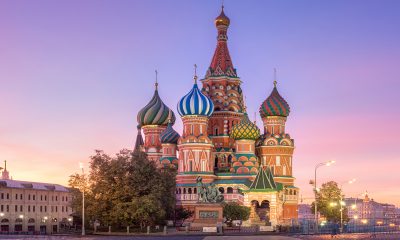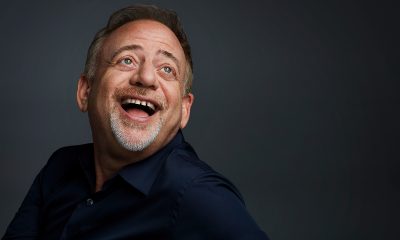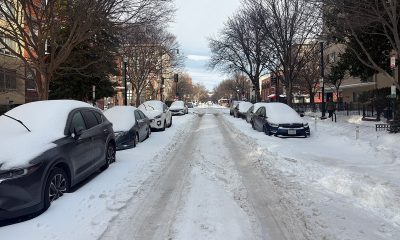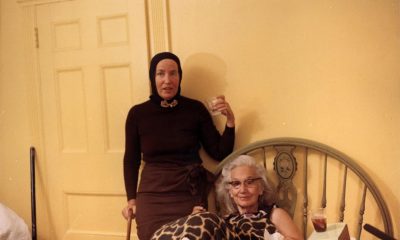World
Out in the World: LGBTQ news from Europe and Asia
Russian Supreme Court declared global LGBTQ rights movement ‘extremist’

NEPAL
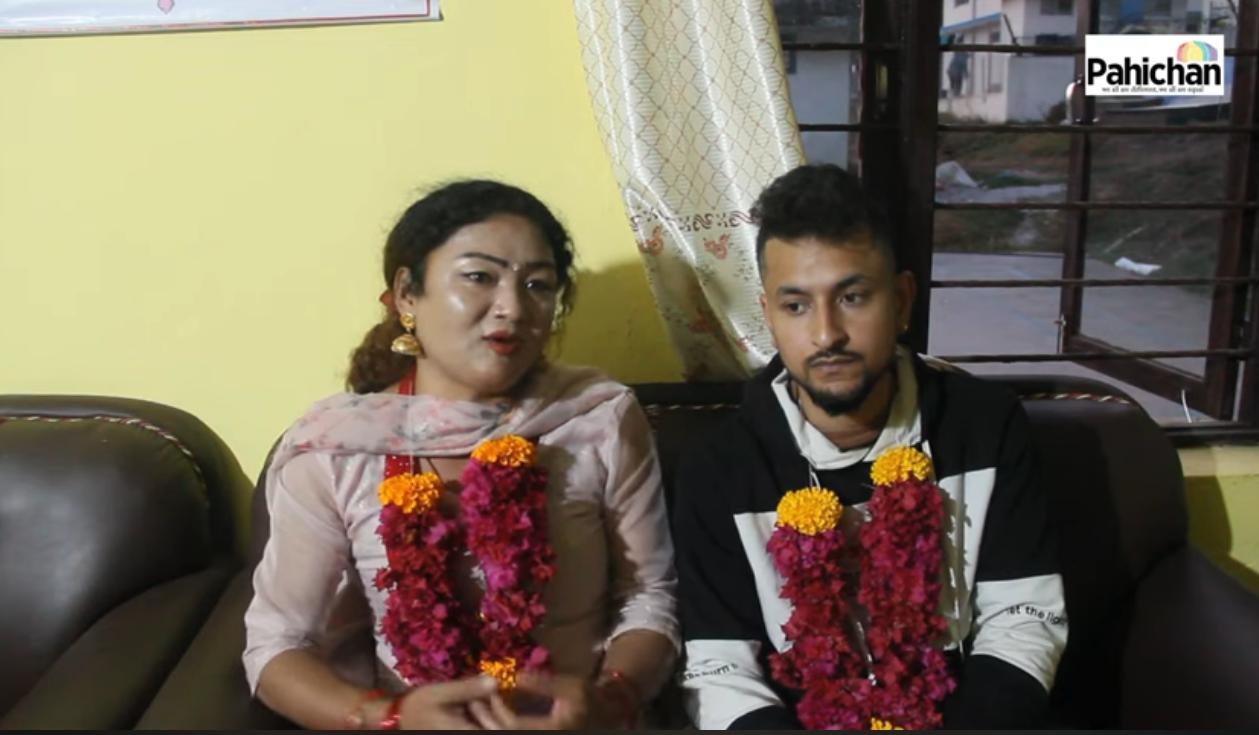
The marriage between Maya Ram Bahadur Gurung and Surendra Pandey this past week in the Nepalese capital city of Kathmandu is being hailed by the country’s LGBTQ rights activists. Gurung, a transgender woman and Pandey, who is gay, was registered by the local municipality ward office four months after the Himalayan nation’s highest court legalized same-sex marriages in an interim order.
Sunil Babu Pant, the former executive director/CEO and founder of the Blue Diamond Society, first LGBTQ rights organization in Nepal, who has also served in the country’s parliament was present for the civil ceremony telling the Associated Press: “After 23 years of struggle, we got this historic achievement, and finally, Maya and Surendra got their marriage registered at the local administration office.”
In a later interview with Naya Prakashan news Pant noted. “A wedding in Nepal today can become the signpost in South Asia for a more equal tomorrow.”
Human Rights Watch reported that Gurung, a trans woman who is legally recognized as male, and Pandey, a cisgender gay man, held a Hindu wedding ceremony in 2017. They first attempted to legally register their marriage in June this year at the Kathmandu District Court, following an interim order by Nepal’s Supreme Court instructing authorities to register same-sex marriages while considering a case that argues for marriage equality across the country.
When that court rejected their registration, saying it did not need to recognize a couple that was not one legal male and one legal female, they appealed to the Patan High Court in September.
But the high court judges rejected the appeal, saying that it was the responsibility of the federal government to change the law before the lower authorities could register such marriages, HRW reported.
Nepal’s civil code currently only recognizes marriages between one man and one woman. The Supreme Court attempted to rectify that by ordering the creation of an interim registry for nontraditional marriages until parliament changes the law. The two lower courts then reversed the logic by claiming that the national law must be changed first.
MALAYSIA
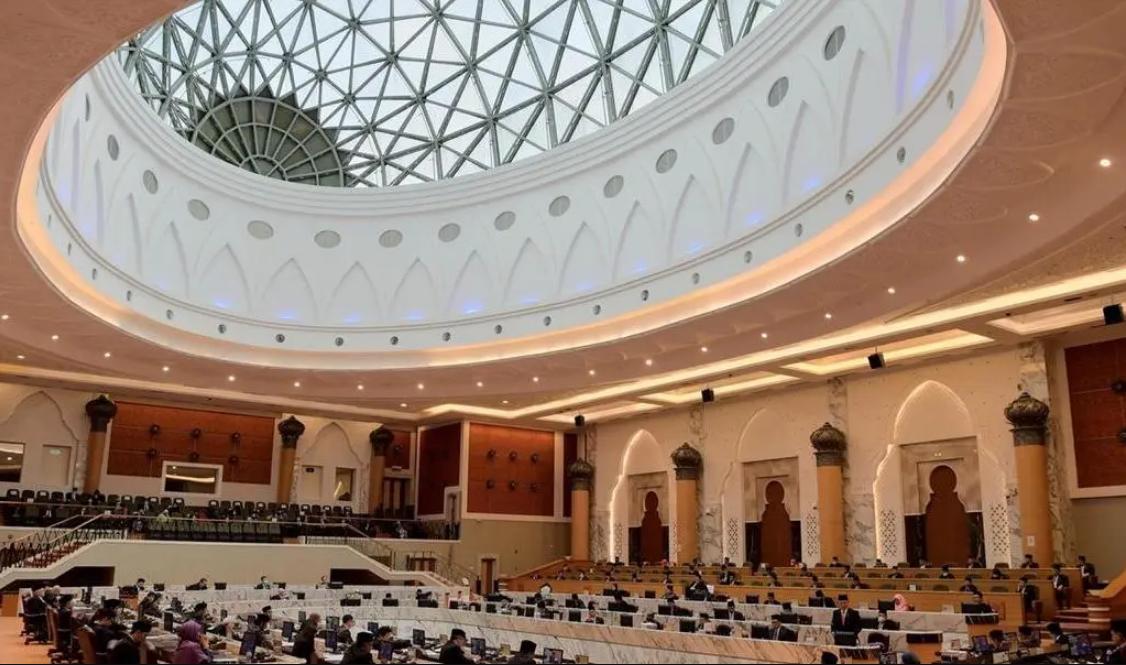
Malaysian LGBTQ rights activists are decrying efforts by the Johor state government to establish a “rehab” center for “people in same-sex relations,” which would use the globally debunked conversion therapy to change sexual orientation.
Malaysian society is predominately Muslim and conservative. Human Rights Watch has noted that the government authorities in the Malay Archipelago are willing to enforce the rigid gender roles by which they compel all Malaysians to abide with few exceptions.
Speaking at the Johor state assembly on Wednesday, the state’s Islamic Religious Affairs Committee Chair Mohd Fared Mohd Khalid said 400,000 ringgit ($86,000) has been allocated for the rehabilitation center, which was expected to open in July next year the South China Morning Post reported.
“This rehabilitation center is established … for them to get back on the right path,” Fared told the assembly.
Aside from same-sex individuals, Fared proclaimed that the centre would also house “those who are deemed deviant” from the state-prescribed religious Islamic orthodoxy, which includes the Ahmadiyya Muslim Community and Baha’i among some 42 groups, the state’s religious affairs body has identified as “deviant.”
The Malaysian government relies on the force of law to prohibit expression and conduct that fall outside of a heterosexual, cisgender norm. It is one of only a handful of countries that explicitly makes gender nonconformity a criminal offense.
Reacting to the rehab news, Justice for Sisters, a trans rights group, told the South China Morning Post that detaining people was a violation of the Malaysian Constitution, which safeguards personal liberty, privacy, dignity, equality and prohibits discrimination on the basis of gender.
“Detaining people on the grounds of changing their SOGIE — sexual orientation, gender identity and gender expression — amounts to torture without a doubt,” said the group’s spokesperson, Thilaga Sulathireh.
Malaysia also criminalizes consensual same-sex conduct at both the federal and state levels. Its officials frequently insist that the laws criminalizing lesbian, gay, bisexual and trans people are intended not primarily to punish, but rather to return them to “the right path,” statements echoed this past week by Johor’s Islamic Religious Affairs Committee chairman.
Human Rights Watch notes that officials under successive Malaysian governments have typically coded their approach to sexual and gender diversity in a logic of “prevention” and “rehabilitation,” backed by the threat of punishment. Former Prime Minister Muhyiddin Yassin, who was in office between March 2020 and August 2021, described LGBTQ people as a threat to Islam, backed by “foreign influences” and a “disorder” that requires counseling.
THE VATICAN

Pope Francis this past week further disciplined another American prelate, retired Cardinal Raymond Burke, who has publicly critiqued Francis over the pope’s ongoing efforts for reforming the Catholic Church, especially over issues centered on LGBTQ Catholics and the LGBTQ community.
The Associated Press reported that Francis revoked Burke’s subsidized Vatican apartment and retirement salary, according to sources because he was a source of “disunity” in the church.
The move is “unprecedented in the Francis era,” Christopher White, a Vatican observer who writes for the National Catholic Reporter, told the BBC.
“Typically, retired cardinals continue to reside in Rome after stepping down from their positions, often remaining active in papal liturgies and ceremonial duties,” he said. “Evicting someone from their Vatican apartment sets a new precedent.”
Burke, who spends much of his time in the U.S. at the Our Lady of Guadalupe shrine he founded in his native Wisconsin, has not yet been notified of the pope’s actions according to the AP.
At the end of October, the pope convened a month long conference, known as a Synod of Bishops, followed an unprecedented two-year canvassing of rank-and-file Catholics. During the conference Jesuit Fr. James Martin, a popular spiritual author and editor of the LGBTQ Catholic publication Outreach, noted that on LGBTQ issues, “There were widely diverging views on the topic,” he said.
In early November, Bishop Joseph Strickland of Eastern Texas was “relieved” of his position as head of the Diocese of Tyler by Francis after Strickland’s refusal to resign in a dispute over the church’s LGBTQ inclusion in Catholic practices. Strickland often had echoed Burke’s positions.
Although retired in 2014, Burke had an incredibly anti-LGBTQ public record since, especially in vocalizing his opposition to plans to be inclusive of the LGBTQ community. Burke was once a high-ranking U.S. archbishop and head of the Apostolic Signatura, the Vatican court, but was repeatedly demoted under Francis and then forced to retire.
In March 2020, Burke laid blame on the coronavirus pandemic on the LGBTQ community. As churches were forced to close during the lock-downs ordered by health officials, Burke wrote:
“Worship is particularly needed now because of ‘how distant our popular culture is from God,’ he wrote, noting abortion and euthanasia, then attacking the LGBTQ equality movement, particularly activism for recognition of trans identity.
“‘We need only to think of the pervasive attack upon the integrity of human sexuality, of our identity as man or woman, with the pretense of defining for ourselves, often employing violent means, a sexual identity other than that given to us by God,” he said. “With ever greater concern, we witness the devastating effect on individuals and families of the so-called ‘gender theory.'” Burke went on to say, “There is no question that great evils like pestilence are an effect of original sin and of our actual sins.’”
Burke once compared lesbian, gay, and bisexual people to murderers.
UNITED KINGDOM
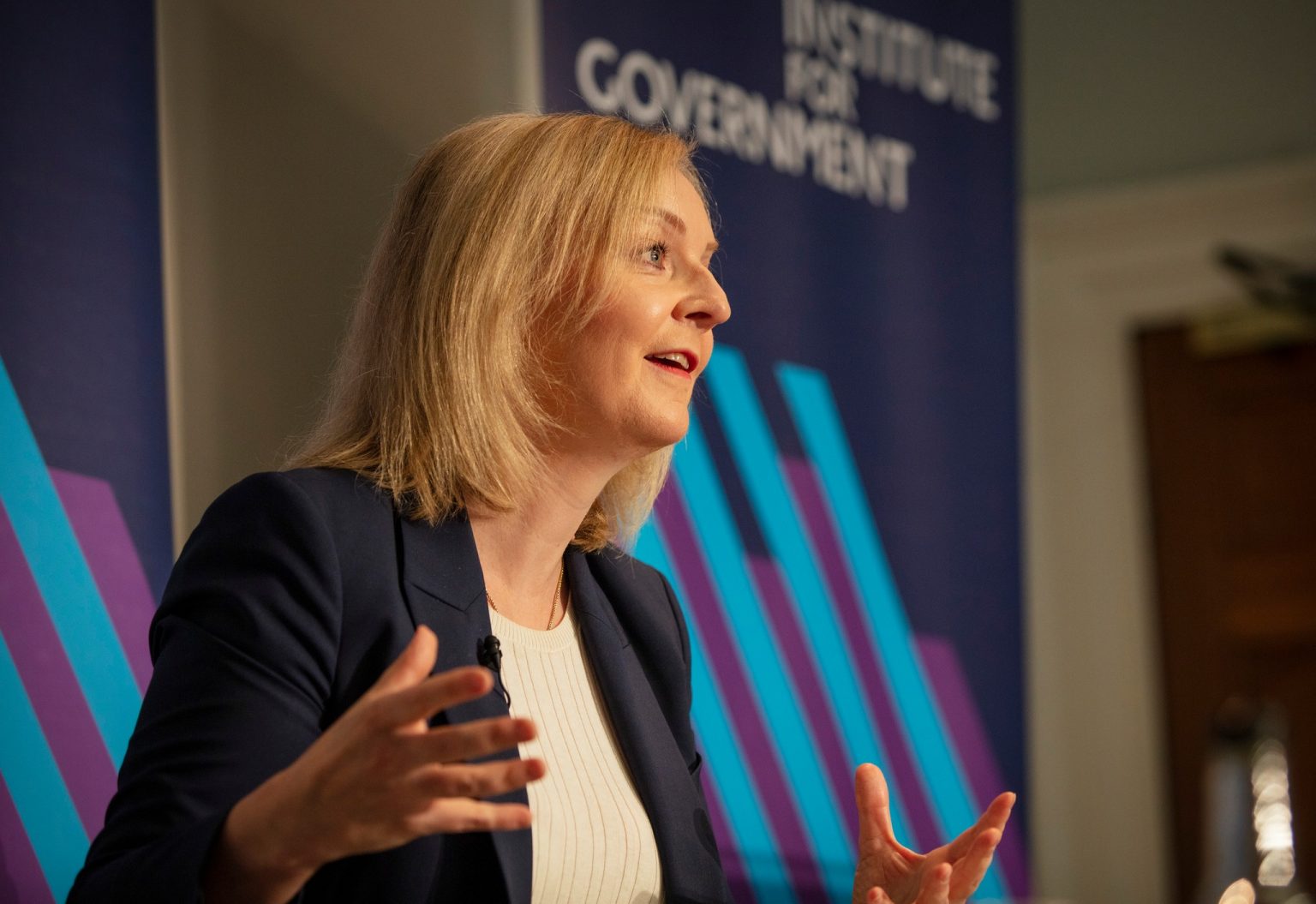
Former British Prime Minister Liz Truss is said to be backing a private bill to be introduced into the House of Commons that will ban minor children under the age of 18 from accessing hormone therapy and block the National Health Service and the UK government from recognizing their social transition.
After Truss was one of 20 backbencher MPs to be selected to bring forward a bill, a source reportedly said she chose the legislation because she believes under-18s need to be protected from “making irreversible decisions about their bodies.”
PinkNewsUK pointed out that argument fails to consider the fact that trans under-18s are typically prescribed physically reversible puberty blockers and are only permitted to do so after lengthy medical checks.
Physically reversible puberty blockers are also typically only given to teenagers over the age of 16. It is exceptionally rare for under-16s to be prescribed puberty blockers.
Despite this, Truss is expected to formally present the bill on Wednesday during a House of Commons hearing where its MP backers will also attend, PinkNewsUK also reported.
A spokesperson for the UK government said in a statement: “This government is clear on the fundamental importance of biological sex.”
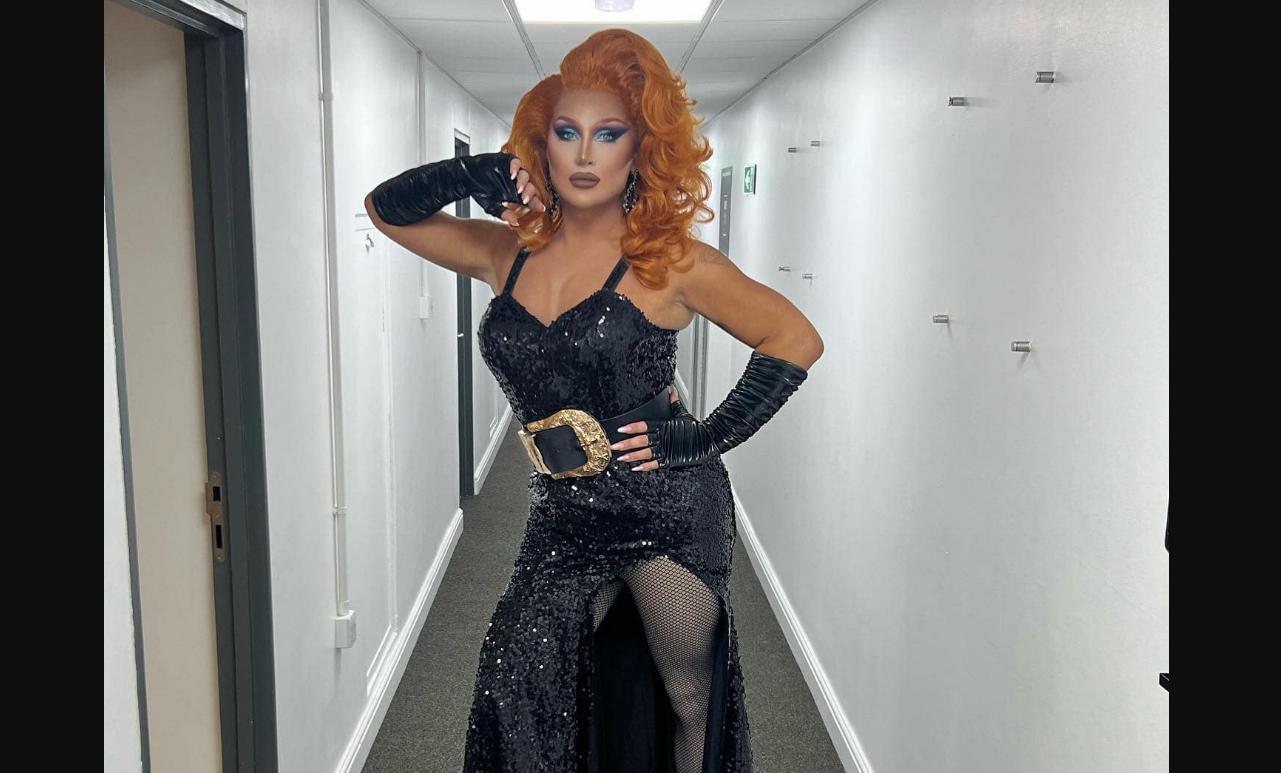
A magistrate’s court found a 51-year-old man guilty of a hate crime in an assault on Drag Race UK star The Vivienne this past June at a local McDonald’s. Alan Whitfield told the court that he had struck James Lee Williams, aka The Vivienne, in the face claiming that his actions were not motivated by homophobia but by what he described as “banter.”
During his testimony, 31-year-old Williams said he was subjected to a “barrage of abuse” from Whitfield after entering the fast food restaurant PinkNewsUK reported.
“He [Whitfield] carried on, then after the fourth ‘look at the state of you’ I said ‘look at the state of you’, I said ‘look at the state of your face’, to which he said ‘I’ve got skin cancer’ and then punched me straight in the face.”
PinkNewsUK reported that the RuPaul’s Drag Race UK star, who took home the crown in the first series in 2018, argued that the attack was motivated by homophobia because there were “countless other people” in the McDonald’s at the time.
Whitfield maintained throughout the proceedings that the assault “was nothing to do with him [Williams] being gay,” reiterating that he has LGBTQ members of his family.
After court deliberation, Justice Anthony Canning said that Whitfield’s evidence was “not credible.”
“Having considered this incident from beginning to end, we believe beyond reasonable doubt that the hostility shown by yourself from that outset was motivated and down to the perceived sexuality of the complainant and this was homophobic in nature.”
Whitfield will be sentenced in January.
IRELAND
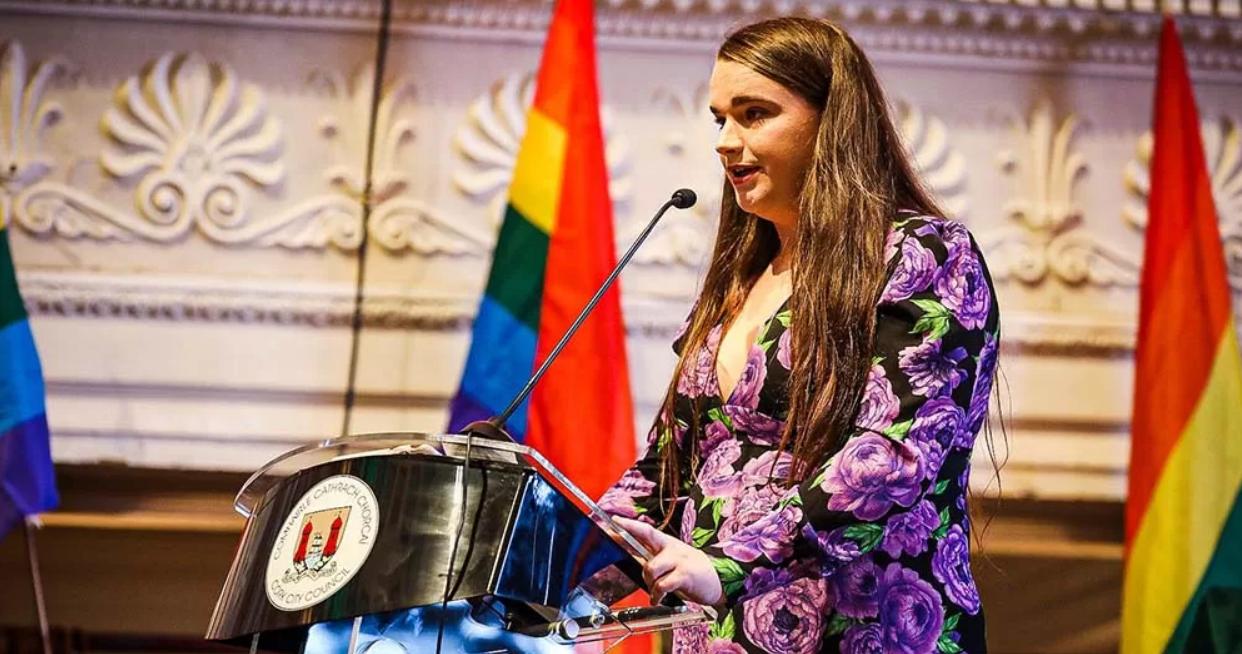
A 25-year-old second year law student at the University College Cork is set to make history the first openly trans person in history to run for local election in Ireland.
Saoirse Mackin, who co-founded Trans+ Pride Cork in 2022, was nominated by the Social Democrats to run in Cork City North West’s 2024 election. Mackin, who transitioned in 2017, told LGBTQ+ media outlet GCN – Ireland, that if elected, one of her top priorities will be eliminating the excessive healthcare barriers that are in place for trans women in Ireland.
Mackin also advocates for better cycling infrastructures, as well as affordable housing and improved public services GCN noted.
She said, “If elected, my priority areas will include the provision of more affordable housing, improved public services, universal access to healthcare and the development of quality cycle infrastructure in Cork. I will also campaign for better local amenities, such as upgraded parks, green spaces, playgrounds and sports facilities.”
In addition to being a trans activist, Mackin is also a law student and community organiser who has bravely spoken up against the growing far-right movement in Ireland. She was also named in the Irish Examiner’s 100 Women of 2022 list.
RUSSIA
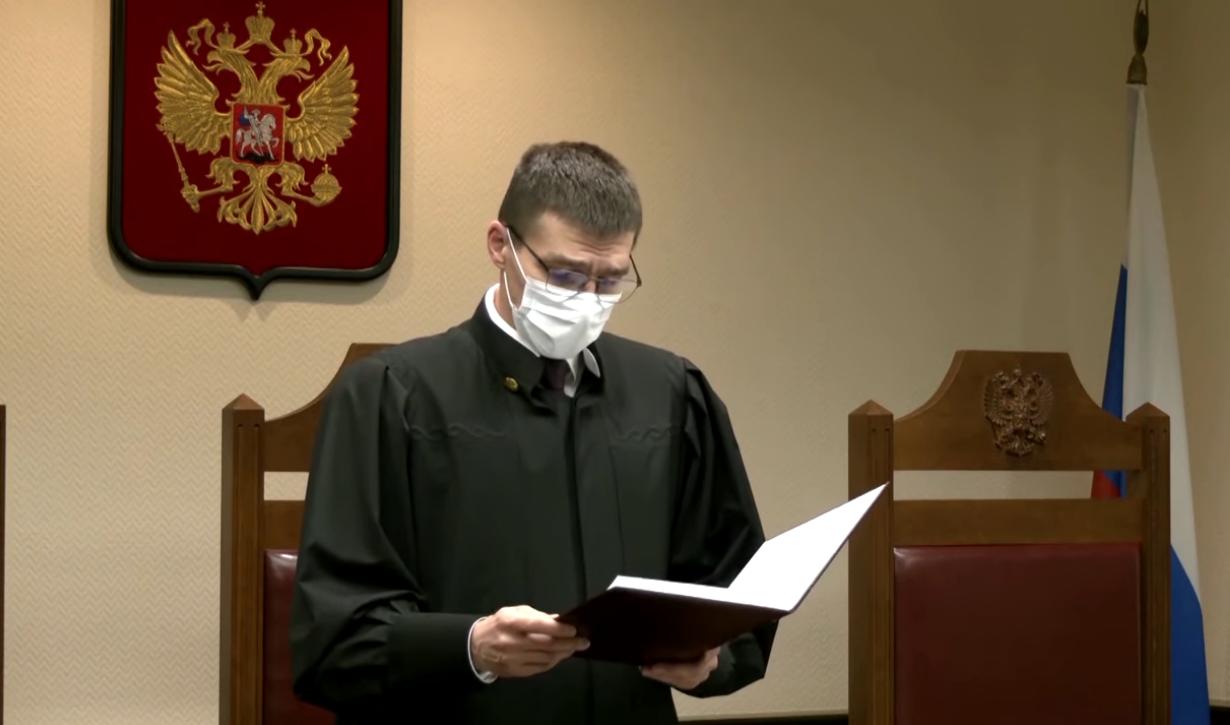
Russia’s Supreme Court this past week ruled that “the international LGBTQ movement” is “extremist” which, legal experts and human rights advocates say will lead to all LGBTQ groups and organizations in Russia being banned.
The Russian Justice Ministry had lodged an administrative legal claim with the High Court to recognize the International LGBTQ public movement as extremist and ban its activity in Russia. Justice Minister Konstantin Chuychenko did not specify whether it was seeking the closure of any specific groups or organizations, or if the designation would apply more broadly to the LGBTQ community, causes and individuals.
Speaking with Agence France-Presse, the head of the Sphere human rights group, which advocates for the Russian LGBTQ community, had criticized Chuychenko‘s actions.
“Russian authorities are once again forgetting that the LGBTQ+ community are human beings,” said Sphere head Dilya Gafurova, who has left Russia.
Authorities “don’t just want to erase us from the public field: They want to ban us as a social group,” Gafurova told AFP. “It’s a pretty typical move for repressive non-democratic regimes — the persecution of the most vulnerable. We will continue our fight,” he added.
UN High Commissioner for Human Rights Volker Türk in a statement issued from Geneva after the ruling said:
“This decision exposes human rights defenders and anyone standing up for the human rights of LGBT people to being labeled as ‘extremist’ — a term that has serious social and criminal ramifications in Russia,” said Türk. “No one should be jailed for doing human rights work or denied their human rights based on their sexual orientation or gender identity.”
“I call on the Russian authorities to repeal, immediately, laws that place improper restrictions on the work of human rights defenders or that discriminate against LGBT people. The law must uphold and defend the principles of equality and non-discrimination. The law must never be used to perpetuate inequality and discrimination,” Türk added.
Laws that must be reformed include those prohibiting gender-affirming medical and administrative procedures, and banning so-called “LGBT propaganda,” which made it illegal to discuss LGBT issues in Russia on penalty of substantial fines, Türk said.
The Türk also pointed out the wide use of the “extremist” label is more generally used to prosecute all those perceived as opponents, including politicians, journalists, human rights defenders and others.
“LGBTIQ people exist in every country, and a legal ban on the undefined ‘international LGBT movement’ will result in more violence, discrimination, and isolation of LGBTIQ people in Russia, who are already targeted for being who they are,” said Maria Sjödin, executive director of Outright International.
“Russia, which has already restricted access to information about LGBTIQ issues, is yet again violating the human rights of LGBTIQ people by restricting freedoms of association and expression. This is a great concern not just for human rights defenders focused on protecting the rights of LGBTIQ people but for everyone who believes in human rights for all,” Sjödin added.
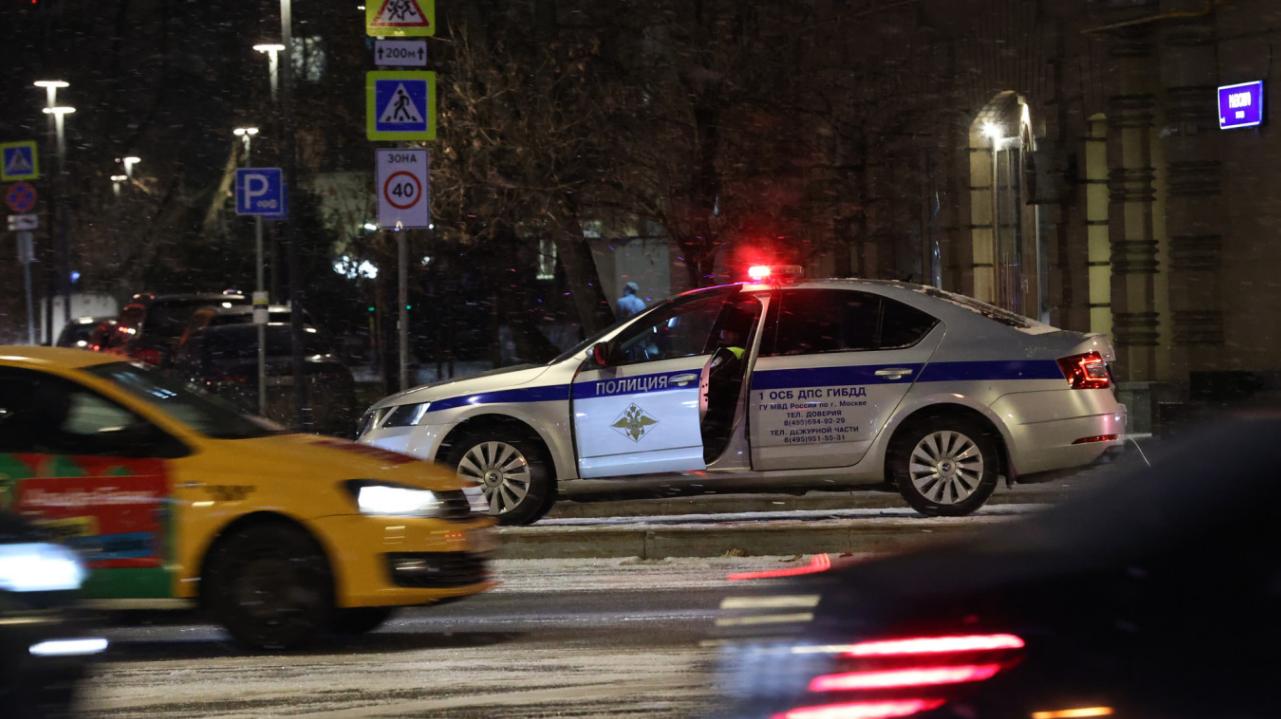
Within 48 hours of the High Court’s ruling, multiple Russian Law enforcement agencies executed a series of raids multiple queer venues in the Russian capital. At one club located on Ulitsa Malaya Yakimanka Street in the center of Moscow, there were approximately 300 people gathered when Russian security forces burst in under the pretext of searching for drugs in the establishment. Several persons were detained.
“In the middle of the party, they stopped the music and began to enter the halls [the police]. There were also citizens of other countries at the party. At the exit, they photographed passports without permission to do so,” an LGBTQ rights activist who had previously spoken to other media outlets told the Washington Blade in a phone call Sunday.
The raids took place in at least four venues, and were reportedly expected by the clubs management and owners.
Security forces arrived at an establishment near the Avtozavodskaya metro station and a themed strip club for men near the Polyanka metro station in central Moscow. The administration of the clubs warned visitors about the events in advance, the Moscow Times reported.
According to an eyewitness to the police raid on Mono, a bar also located in the city’s central district on Pokrovsky Boulevard, “there was the usual party, then the owner came out and said that within an hour law enforcement would arrive in connection with the recent ruling by the Supreme Court. Within 20 minutes the dance floor started to empty,” Ostorozhno Novosti, an independent Russian news outlet reported.
The Moscow Times could not independently verify Ostorozhno Novosti’s reporting, and employees from at least two of the clubs believed to have been targeted on Friday denied the reports, which they called “fakes.”
“I wake up … and I’m reading the news, and, of course, it’s hilarious. Where was [this raid] when we had nothing going on?” the manager of the club Mono said in a video posted on social media Saturday.
The Blade has also been unable to verify Ostorozhno Novosti’s reporting on the Mono bar raid but in a series of phone calls and Telegram chats was able to determine that multiple raids had in fact taken place across central Moscow and that gay clubs and LGBTQ safe spaces were targeted.
In the Baltic city of St. Petersburg, the largest gay club, Central Station, according to independent news outlet Sota, reported the club’s management said that they were denied further rental of the site due to the “new law.”
Additional reporting from Pahichan Media, the South China Morning Post, Human Rights Watch, The BBC, PinkNewsUK, Agence France-Presse, The Moscow Times, GCN Ireland, the Vatican News and the Associated Press.
Colombia
LGBTQ Venezuelans in Colombia uncertain about homeland’s future
US forces seized Nicolás Maduro and his wife on Jan. 3

BOGOTÁ, Colombia — LGBTQ Venezuelans who live in Colombia remain uncertain about their homeland’s future in the wake of now former-President Nicolás Maduro’s ouster.
José Guillén is from Mérida, a city in the Venezuelan Andes that is roughly 150 miles from the country’s border with Colombia. He founded an LGBTQ organization that largely focused on health care before he left Venezuela in 2015.
Guillén, whose mother is Colombian, spoke with the Washington Blade on Jan. 9 at a coffee shop in Bogotá, the Colombian capital. His husband, who left Venezuela in 2016, was with him.
“I would like to think that (Venezuela) will be a country working towards reconstruction in a democracy,” said Guillén, responding to the Blade’s question about what Venezuela will look like in five years.
American forces on Jan. 3 seized Maduro and his wife, Cilia Flores, at their home in Caracas, the Venezuelan capital, during an overnight operation.
Maduro and Flores on Jan. 5 pleaded not guilty to federal drug charges in New York. The Venezuelan National Assembly the day before swore in Delcy Rodríguez, who was Maduro’s vice president, as the country’s acting president.
Hugo Chávez died in 2013, and Maduro succeeded him as Venezuela’s president. Subsequent economic and political crises prompted millions of Venezuelans to leave the country.

The Blade in 2021 reported Venezuelan authorities raided HIV/AIDS service organizations, arrested their staffers, and confiscated donated medications for people with HIV/AIDS. Tamara Adrián, a member of the Venezuelan opposition who in 2015 became the first openly transgender person elected to the National Assembly, told the Blade she had to take security precautions during her campaign because government supporters targeted her.
The Blade on Jan. 8 spoke with a Venezuelan AIDS Healthcare Foundation client who said Maduro’s ouster “is truly something we’ve been waiting for for 26 or 27 years.” Another Venezuelan AHF client — a sex worker from Margarita Island in the Caribbean Sea who now lives in Bogotá — echoed this sentiment when she spoke with the Blade two days later.
“I love the situation of what’s happening,” she said during a telephone interview.
Sources in Caracas and elsewhere in Venezuela with whom the Blade spoke after Jan. 3 said armed pro-government groups known as “colectivos” were patrolling the streets. Reports indicate they set up checkpoints, stopped motorists, and searched their cell phones for evidence that they supported Maduro’s ouster.
“In the last few days, it seems there are possibilities for change, but people are also very afraid of the government’s reactions and what might happen,” Guillén said.
“Looking at it from an LGBT perspective, there has never been any recognition of the LGBT community in Venezuela,” he noted. “At some point, when Chávez came to power, we thought that many things could happen because it was a progressive government, but no.”

Luis Gómez is a lawyer from Valencia, a city in Venezuela’s Carabobo state. He and his family since he was a child have worked with autistic children through Fundación Yo Estoy Aquí, a foundation they created.
Gómez was in high school in 2013 when Maduro succeeded Chávez. He graduated from law school in 2018. Gómez in November 2020 fled to Colombia after he became increasingly afraid after his mother’s death that authorities would arrest him because of his criticism of the government.
The Colombian government in December 2025 recognized him as a refugee.
Gómez during a Jan. 9 interview in Bogotá discussed his initial reaction to Maduro’s ouster.
“I’m 28 years old, and 27 of those years have been in dictatorship,” Gómez told the Blade. “I had never experienced anything like this, which is why it had such a strong impact on me.”
Gómez said he initially thought the operation to seize Maduro and Flores was similar to an attempted coup that Chávez led in 1992. Gómez added he quickly realized Jan. 3 was different.
“The last thing we thought would happen was that Maduro would be wearing an orange jumpsuit in prison in New York,” he told the Blade. “It’s also important that those of us outside (of Venezuela) knew about it before those inside, because that’s the level of the lack of communication to which they have subjected all our families inside Venezuela.”
Gómez said Maduro’s ouster left him feeling “a great sense of justice” for his family and for the millions of Venezuelans who he maintains suffered under his government.
“Many Venezuelans, and with every reason, around the world started celebrating euphorically, but given our background and our understanding, we already knew at that moment what was coming,” added Gómez. “Now a new stage is beginning. What will this new stage be like? This has also generated uncertainty in us, which the entire citizenry is now experiencing.”
Trump ‘puts us in a very complex position’
U.S. chargé d’affaires Laura Dogu on Jan. 31 arrived in Caracas to reopen the American embassy that closed in February 2019.
Tens of thousands of people on Jan. 7 gathered in Bogotá and elsewhere in Colombia to protest against President Donald Trump after he threatened Colombian President Gustavo Petro, who was once a member of the now disbanded M-19 guerrilla movement. The two men met at the White House on Tuesday.

Both Gómez and Guillén pointed out Rodríguez remains in power. They also noted her brother, Jorge Rodríguez, is currently president of the National Assembly.
“Delcy has been a key figure in the regime for many years,” said Guillén. “In fact, she was one of the toughest people within the regime.”
Gómez and Guillén also spoke about Trump and his role in a post-Maduro Venezuela.
“Donald Trump, especially in this second term, has played a very particular role in the world, especially for those of us who, genuinely, not falsely or hypocritically, truly defend human rights,” said Gómez. “It puts us in a very complex position.”
Gómez told the Blade the operation to seize Maduro and Flores was “not an invasion for us.”
“It’s not a military intervention,” said Gómez. “It was the beginning, or I would even dare to say the end of the end.”
He acknowledged “there are interests at play, that the United States doesn’t do this for free.” Gómez added U.S. access to Venezuelan oil “for us, at this point, is not something that matters to us.”
“Venezuelans have received nothing, absolutely nothing from the resources generated by oil. We live without it,” he said. “The only ones getting rich from the oil are the top drug traffickers and criminals who remain in power.”
Guillén pointed out the U.S. “has always been one of the biggest buyers of oil from Venezuela, and perhaps we need that closeness to rebuild the country.”
“I also feel that there is a great opportunity with the millions of Venezuelans who left the country and who would like to be part of that reconstruction as well,” he said.
“Logically it’s sad to see the deterioration in the country, the institutions, even the universities in general,” added Guillén. “Those of us who are outside the country have continued to move forward and see other circumstances, and returning to the country with those ideas, with those new approaches, could provide an opportunity for change. That’s what I would like.”
Editor’s note: International News Editor Michael K. Lavers was on assignment in Colombia from Jan. 5-10.

More than 40 openly LGBTQ athletes are expected to compete in the Milan Cortina Winter Olympics that open on Friday.
Outsports.com notes eight Americans — including speedskater Conor McDermott-Mostowy and figure skater Amber Glenn — are among the 44 openly LGBTQ athletes who will compete in the games. The LGBTQ sports website also reports Ellis Lundholm, a mogul skier from Sweden, is the first openly transgender athlete to compete in any Winter Olympics.
“I’ve always been physically capable. That was never a question,” Glenn told Outsports.com. “It was always a mental and competence problem. It was internal battles for so long: when to lean into my strengths and when to work on my weaknesses, when to finally let myself portray the way I am off the ice on the ice. That really started when I came out publicly.”
McDermott-Mostowy is among the six athletes who have benefitted from the Out Athlete Fund, a group that has paid for their Olympics-related training and travel. The other beneficiaries are freestyle skier Gus Kenworthy, speed skater Brittany Bowe, snowboarder Maddy Schaffrick, alpine skier Breezy Johnson, and Paralympic Nordic skier Jake Adicoff.
Out Athlete Fund and Pride House Los Angeles – West Hollywood on Friday will host a free watch party for the opening ceremony.
“When athletes feel seen and accepted, they’re free to focus on their performance, not on hiding who they are,” Haley Caruso, vice president of the Out Athlete Fund’s board of directors, told the Los Angeles Blade.
Four Italian LGBTQ advocacy groups — Arcigay, CIG Arcigay Milano, Milano Pride, and Pride Sport Milano — have organized the games’ Pride House that will be located at the MEET Digital Culture Center in Milan.
Pride House on its website notes it will “host a diverse calendar of events and activities curated by associations, activists, and cultural organizations that share the values of Pride” during the games. These include an opening ceremony party at which Checcoro, Milan’s first LGBTQ chorus, will perform.
ILGA World, which is partnering with Pride House, is the co-sponsor of a Feb. 21 event that will focus on LGBTQ-inclusion in sports. Valentina Petrillo, a trans Paralympian, is among those will participate in a discussion that Simone Alliva, a journalist who writes for the Italian newspaper Domani, will moderate.
“The event explores inclusivity in sport — including amateur levels — with a focus on transgender people, highlighting the role of civil society, lived experiences, and the voices of athletes,” says Milano Pride on its website.
The games will take place against the backdrop of the U.S. Olympic and Paralympic Committee’s decision to ban trans women from competing in women’s sporting events.
President Donald Trump last February issued an executive order that bans trans women and girls from female sports teams in the U.S. A group of Republican lawmakers in response to the directive demanded the International Olympics Committee ban trans athletes from women’s athletic competitions.
The IOC in 2021 adopted its “Framework on Fairness, Inclusion and Nondiscrimination on the Basis of Gender Identity and Sex Variations” that includes the following provisions:
• 3.1 Eligibility criteria should be established and implemented fairly and in a manner that does not systematically exclude athletes from competition based upon their gender identity, physical appearance and/or sex variations.
• 3.2 Provided they meet eligibility criteria that are consistent with principle 4 (“Fairness”, athletes should be allowed to compete in the category that best aligns with their self-determined gender identity.
• 3.3 Criteria to determine disproportionate competitive advantage may, at times, require testing of an athlete’s performance and physical capacity. However, no athlete should be subject to targeted testing because of, or aimed at determining, their sex, gender identity and/or sex variations.
The 2034 Winter Olympics are scheduled to take place in Salt Lake City. The 2028 Summer Olympics will occur in Los Angeles.
China
Two Chinese men detained over AI-generated picture of pandas engaging in same-sex behavior
Arrests part of increased online surveillance, LGBTQ rights crackdown

Chinese authorities have detained two men after they shared an artificially altered image that linked queer identity with a specific city.
The Washington Post on Jan. 21 reported the men — who are 29 and 33 — circulated an AI-generated picture depicting pandas engaging in same-sex behavior in Chengdu, a major city in southwestern China often referred to as the “panda capital” due to its association with giant panda conservation. Local officials described the sharing of the image as “malicious,” and police in Chengdu took the men into custody.
Authorities also suspended the two men’s social media accounts, accusing them of spreading misinformation presented as legitimate news. According to the Post, the artificially generated image was posted alongside a fabricated headline, giving the appearance of an authentic news report. The image depicted two male pandas mating.
According to an official police report, police said the fabricated image was presented in the format of a legitimate news article and accompanied by a false headline. The caption read, “Chengdu: Two male Sichuan giant pandas successfully mate for the first time without human intervention,” authorities said.
Chinese regulators have in recent years tightened oversight of AI and online content.
Under the Interim Measures for the Administration of Generative Artificial Intelligence Services, issued in 2023, providers and users of generative AI systems are required to comply with existing laws, adhere to social and ethical standards, and refrain from producing or disseminating false or misleading information. Additional rules that took effect on Sept. 1, 2025, require online platforms to clearly label AI-generated content, a measure authorities have said is intended to curb misinformation and maintain order in digital spaces.
Police under Chinese law are permitted to impose administrative detention of up to 15 days for offenses deemed to disrupt public order, a category that includes the fabrication or dissemination of false information online. Such cases are handled outside the criminal court system and do not require formal prosecution.
According to a statement the Chengdu Public Security Bureau’s Chenghua branch released, police opened an investigation after receiving public reports that online accounts were spreading false information about the city. Authorities said officers collected evidence shortly afterward and placed the two individuals under administrative detention.
The detentions are not an isolated case.
The Washington Blade in July 2025 reported a Chinese female writer was arrested and subjected to a strip search after publishing gay erotic fiction online. At least 30 other writers — most of them women in their 20s — in the months that followed publicly described similar encounters with law enforcement, including home raids and questioning related to their online writing.
ShanghaiPRIDE, a Chinese LGBTQ advocacy group that organized annual Pride events in the city, has remained indefinitely suspended since 2021. In the same period, dozens of LGBTQ-focused accounts have been removed from WeChat, China’s largest social media platform, as authorities intensified oversight of online content related to sexual orientation and gender identity.
Authorities in 2021 detained the founder of LGBT Rights Advocacy China. They later released them on the condition that he shut down the organization, which ceased operations shortly afterward.
China decriminalized homosexuality in 1997 when it removed consensual same-sex sexual relations from the country’s criminal code. The Chinese Society of Psychiatry in 2001 formally removed homosexuality from its list of mental disorders. Despite those changes, same-sex relationships remain unrecognized under Chinese law, and there are no legal protections against discrimination based on sexual orientation or gender identity. Public advocacy for LGBTQ rights remains tightly restricted, with authorities continuing to limit community organizing, public events and online expression related to sexual minority issues.
Within China’s LGBTQ community, transgender and gender non-conforming people remain among the most vulnerable. Under current regulations, access to gender-affirming surgery is subject to strict requirements, including being at least 18 years old, unmarried, obtaining parental consent and having no criminal record — procedures that are required in order to legally change one’s gender on official documents.
China’s system of online governance places responsibility on both users and platforms to prevent the spread of prohibited content. Social media companies are required to conduct real-name verification, monitor user activity and remove posts that violate regulations, while individuals can be punished for content authorities determine to have caused public misunderstanding or social disruption.
“Actually, at least three similar incidents have occurred in Chengdu recently, all involving netizens posting on social media linking Chengdu with homosexuality, resulting in legal repercussions. This isn’t just about giant pandas. I think the local police’s reaction was somewhat excessive,” said Renn Hao, a Chinese queer activist. “The content was actually praising Chengdu’s inclusivity, and there was no need to punish them with regulations like ‘maliciously spreading false information.’”
“This situation reflects the strict censorship of LGBT related content in the area,” they added. “This censorship makes LGBT-related content increasingly invisible, and people are even more afraid to post or mention it. This not only impacts the LGBTQ+ community in China but also hinders public understanding and awareness of this group.”
-

 a&e features4 days ago
a&e features4 days agoMarc Shaiman reflects on musical success stories
-

 Television4 days ago
Television4 days agoNetflix’s ‘The Boyfriend’ is more than a dating show
-

 Opinions4 days ago
Opinions4 days agoSnow, ice, and politics: what is (and isn’t) happening
-

 Movies4 days ago
Movies4 days ago50 years later, it’s still worth a return trip to ‘Grey Gardens’



